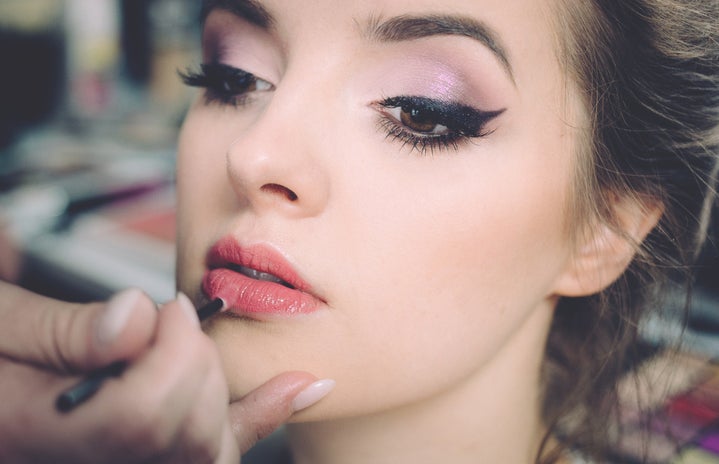It’s on our Instagram posts. We see it in the comments section of our Facebook photos. New profile pictures and Twitter avis are plastered with it—the word “perfect.” While perfection was once an unattainable standard, it is now a compliment thrown around on social media newsfeeds, a response we all strive for. As a woman, the pressure to be “perfect” has always been a struggle I, and many other women, have had to face. “Flawless” a goal I’ve unfortunately always been taught to have. Perhaps this stemmed from growing up with a mother who always went to the grocery store with a full-face of makeup. Perhaps these unrealistic expectations for myself were created by watching one too many episodes of America’s Next Top Model. Maybe this perfection-standard even came from watching the girls in my high school consistently dress up in the latest fashions, tote around Michael Khors bags, and never fail to have a good hair day.
Throughout my life, looking perfect wasn’t just an accomplishment, but seemed to be a requirement. I grew up in a town where women not only dressed to perfection but were expected to act perfectly too. Around here, girls were always polite, never spoke out of turn, and were in perpetually good moods. No woman would ever willingly admit that her house was untidy, her relationship was on the rocks, or that her life was generally a mess—everything was always “good” or “fine,” even when it wasn’t. There was simply no room for imperfections or flaws.
For a long while, I fed into this culture. I did my hair every day, never left the house without makeup, and bragged about my perfect grades, my perfect friendships, and my seemingly perfect life. I hid my depression, my anxiety, and all my insecurities so that people would continue to comment, “you’re perfect” on my status updates. Then, I gave it all up. I was truly exhausted.
In rebellion to this perfection-standard, I put all my weaknesses, all my faults, all my flaws, and all my complaints out on display. I stopped wearing the makeup that covered up my embarrassing “imperfections.” I started talking about my mental illnesses and stopped hiding my medications and therapy sessions. I openly discussed my relationship problems, my sex life, my everyday life stresses—all things I had been told to keep to myself. I no longer had this desire to be perfect, so opening up and being vulnerable was easy. I wasn’t fooling anyone with my perfect façade. And no one was fooling me with theirs.
When I see these women, the women with the perfect skin, the perfect hair, the perfect clothes, the perfect relationship, the “perfect” life, I do not envy them — cannot help but feel bad for them. I know the pressures that they undergo. I know the struggles that they face. Society has told us as women to not be vulnerable, to not be flawed, to not be open about our struggles, but keep it all together under perfectly smooth foundation and waterproof mascara to hide the tears. Women are to smile, and laugh, and be pretty. they aren’t meant to complain, or be unrefined human beings, but are simply intended to be well-dressed robots (or so it seems).
Ladies, I can assure that while “you’re perfect” makes a nice comment on your Instagram selfie, striving for perfection does much more harm than it ever does good. You are a flawed human, and that is ok. You wear sweatpants, and have bad hair days. You fight with your significant other. You make mistakes, and that’s never going to change. So go ahead, cry in public, show your bare face, tell people about that embarrassing thing that happened to you in bed last weekend, because there’s really no point hiding how you really feel, who you really are, and what really happens in your life. And while I may sound like a cheesy motivational speaker, perfect is boring (and exhausting)—so be YOU. Makeup-less, emotional honest, imperfect YOU.


